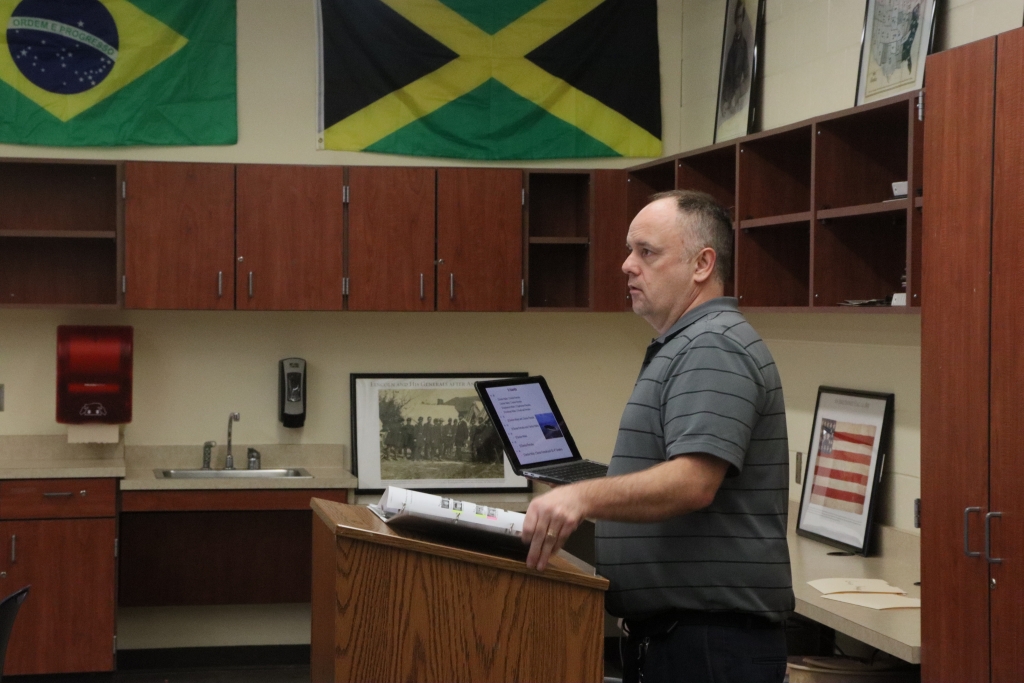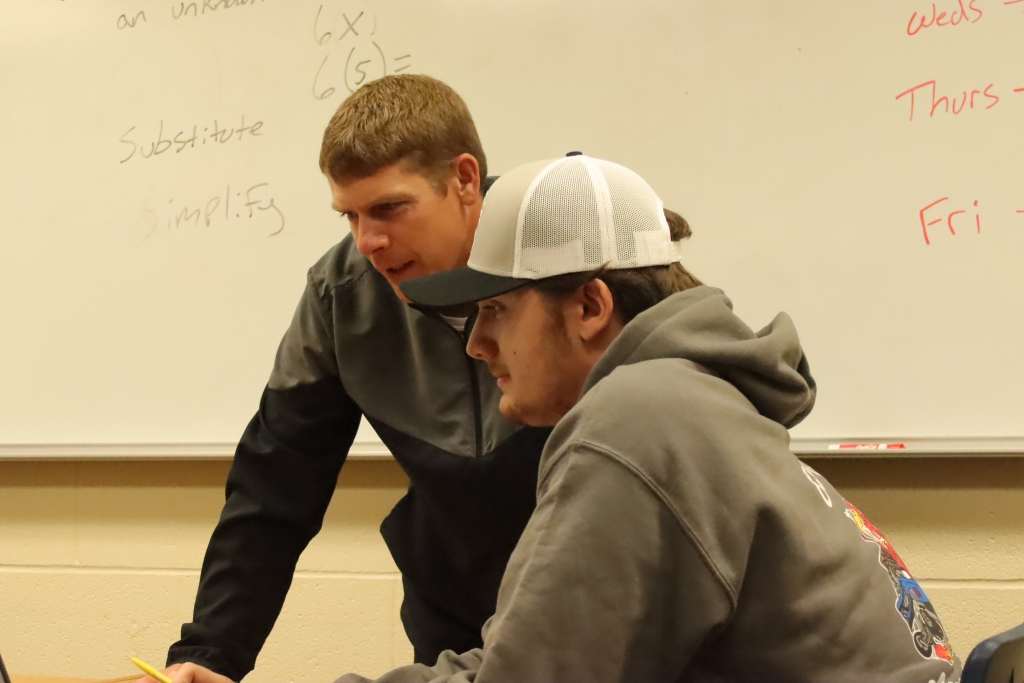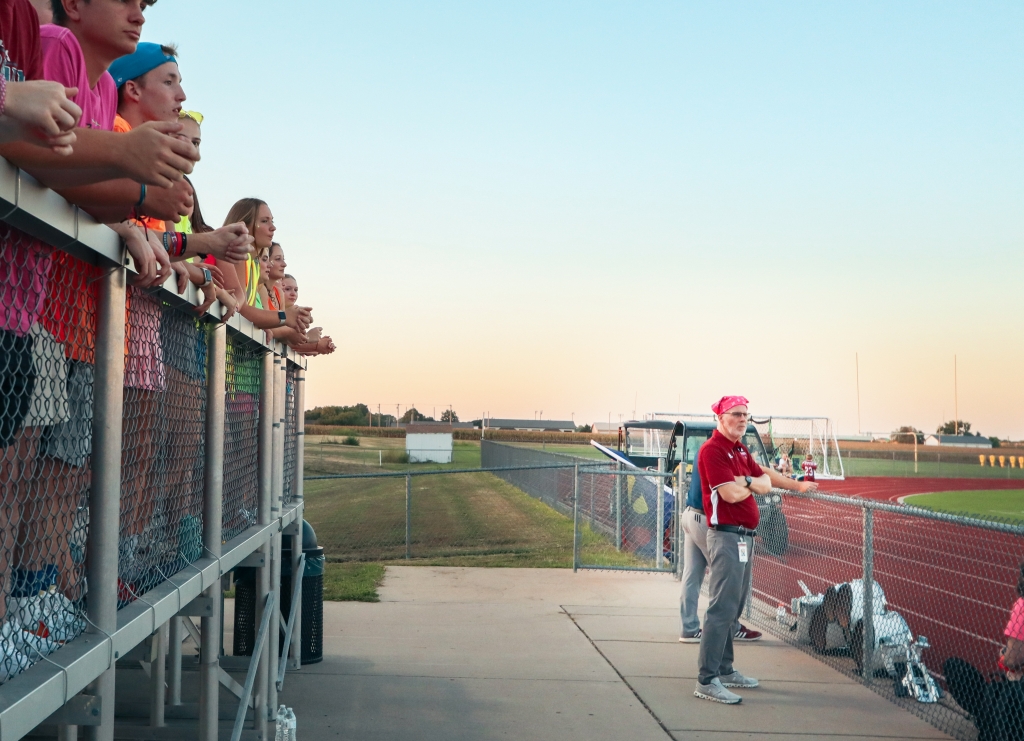Students on the Hardest Year of High School
STORY BY BREE MOORE »
When asking the Seniors what their hardest year of high
school, it came down to Junior year and Senior year.
Senior Kayleigh McCoy said that not only was College
Algebra a struggle for her, but making a decision on what
college she was planning to attend made her choose Senior
year as the hardest for her. Senior Hunter Cadue also agrees
with McCoy that it has been the most difficult – mostly be-
cause it is their last year and there are no second chances.
“I would tell someone going into senior year to not stress
too much,” McCoy said, “because you will get through it and
put effort into the class. You’ll make it through the year as
long as you do try and do work then it’ll be over before you
know it.”
For Cadue, the biggest obstacles came from within.
“The absolute hardest thing I faced this year was motiva-
tion – senioritis struck hard,” said Cadue.
The Seniors didn’t find the workload as hard Junior
year, but for Senior Zax Flaherty the workload was the most
challenging academically. For Flaherty, Calculus was a big
struggle for him. Learning and comprehending some of the
topics was a large part, along with the workload.
WRAP counselor Susan DeVoe is a licensed mental
health professional available for student support at school.
It has been her observation that the Freshman class comes
with varying levels of maturity, and it takes time for them to
settle into the high school routine and gain the emotional
maturity needed to navigate high school successfully. For
many freshmen, one wrong action, post, or comment has the
potential to taint the rest of their high-school experience in a
negative way.
DeVoe said that it can be difficult for students coming
into high school and transitioning to a different school. Their
early years of high school can be the hardest mentally or
emotionally.
“Given the 24-7 fishbowl that teenagers live in,” explained
DeVoe, “with social media and your every move either photo-
graphed or videotaped, it is not surprising to me that teen-
age depression is statistically at 1 in 5 teenagers suffering
from depression and/or anxiety.”
The majority of the students DeVoe has spoken to have
had similar experiences with relationship issues, friend group
gossip, or overall feelings of anxiety that make it uncomfort-
able to walk into school.
“It seems to me that the biggest help freshman could get
is the upperclassmen remembering that at one time they
were a freshman,” said DeVoe, “and I would hope since
that time, all upperclassmen gained maturity with time and
patience from others.”
Upperclassmen may feel that the last two years of school
are the most difficult academically, but ninth-graders don’t
have it much easier when it comes to adjusting their lives.
Fortunately, most students are resilient enough to bounce
back from any situation with the support of family, friends,
and counseling.






